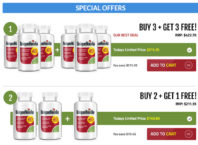Super foods are getting a lot of publicity in the media today and that is because they are very vitamin and nutrient packed and they have lots of antioxidants that help prevent against illnesses and disease.
Going on a low cholesterol diet is not something to be taken lightly. A low cholesterol diet is indeed a lifestyle change, that not only you, but perhaps your entire family can go on. A low cholesterol diet is important for many people around the world who are at risk for heart disease and other medical conditions associated with heightened cholesterol. The diet is just as much about all the wonderful foods you can eat as it is about those foods you want to find alternatives to.
People have experienced over several generations that the body not only likes, but requires the vitamins, minerals, proteins, oxygen, enzymes, and hormones that are in these non-cooked, living super foods. Whether you simply would like to add more living super foods to your diet, or want to change your lifestyle in a more meaningful way, living super, natural foods are what you need to look at for these changes to happen.
Super foods
Super foods are getting a lot of publicity in the media today and that is because they are very vitamin and nutrient packed and they have lots of antioxidants that help prevent against illnesses and disease. They are effective in providing oxygen to the cells, detoxifying tissue, supporting thyroid functions, and providing the body with a natural source of commonly known vitamin and minerals such as calcium, sodium, and potassium, as well as trace nutrients some of which we have yet to be “discovered” or understood. Super foods are nutritional powerhouses high in phytonutrients-chemicals that occur naturally in food. Super foods are extremely rich in health promoting plant compounds like phytonutrients, co-factors, antioxidants, enzymes and much more.
For the best metabolism boosting results make sure you introduce super foods to your existing healthy diet and you will notice the benefits. Always buy your food in season and local if you can as they are grown in the same environment as you live and your body can use them much better than other foods. You will notice that these foods will make you feel better as soon as you start eating them. Keep on trying and experimenting with different foods until you find what is best for your body. Eating only super foods will not do you much good in the long run. The 10 healthiest super foods are blueberries, citrus fruits, garlic, tomatoes, brocoli, oats, salmon, spinach, nuts, and yoghurt.
Regular Exercise
Exercise is important though in keeping healthy and is normally good for keeping the high cholesterol levels down as well. Exercise itself doesnt directly lower cholesterol, but will strengthen the heart and entire circulatory system. Exercise has so many benefits – maintaining function, controlling weight, lowering blood pressure, fighting depression, etc. A scheduled exercise program of aerobic exercises, strength training or even yoga can go a long way in toning up the lazy muscles. Ensure that you follow the exercise routine systematically and regularly.
Conclusion
The objective of every cholesterol diet is the same, though: to reduce circulating levels of low-density lipoproteins (LDL, the bad kind of cholesterol) and increase high-density lipoproteins (HDL). If you are in a high risk group, such as if you have diabetes, a no-cholesterol diet is even better than a low cholesterol diet. Bringing your diet and your cholesterol level under control with a low cholesterol diet is the best thing you can do to save your heart.
Adopting a low cholesterol diet is the other proven and highly recommended way for people to reduce cholesterol to healthier levels. The key to long term success with a low cholesterol diet is to continually monitor the cholesterol and saturated fats in the food you eat, to make sure no bad stuff gets back in. Probably the most important thing to do when shopping for food as part of a low cholesterol diet is learning to read labels. As always when dealing with health factors, you should consult a physician before self-prescribing a diet plan, exercise regime, or any dramatic life altering solution.






